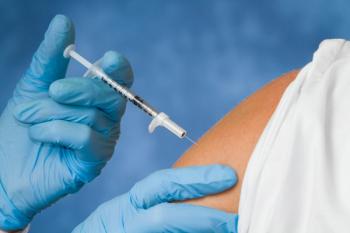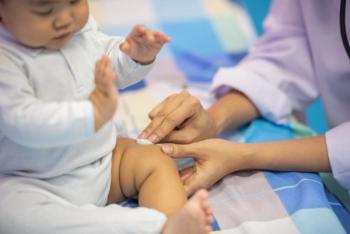
CDC Vaccine Updates Focus on Individual COVID Decisions, Separate Chickenpox Shots for Toddlers
The CDC updates vaccine schedules, emphasizing personalized decision-making for COVID-19 shots and recommending standalone chickenpox vaccines for toddlers.
The CDC recently updated its vaccine schedules, giving folks more of a decision about COVID-19 shots and recommending separate chickenpox vaccines for toddlers. These changes were made in efforts to make vaccine decisions more personal and based on individual health risks.
The CDC said in an announcement that
Deputy Secretary of Health and Human Services Jim O’Neill explained in the announcement why the change was needed.
“Informed consent is back. CDC's 2022 blanket recommendation for perpetual COVID-19 boosters deterred healthcare providers from talking about the risks and benefits of vaccination for the individual patient or parent,” O’Neill said. “That changes today. I commend the doctors and public health experts of ACIP for educating Americans about important vaccine safety signals. I also thank President Trump for his leadership in making sure we protect children from unintended side effects during routine immunization.”
O’Neill also posted on X (formerly Twitter) in response to a Sept. 26 post President Donald Trump made about recommendations on pregnant women and children taking Tylenol, changes to the MMR vaccine and Hepatitis B shots for children.
“I call on vaccine manufacturers to develop safe monovalent vaccines to replace the combined MMR and 'break up the MMR shot into three totally separate shots,'” O’Neill wrote in a post quoting Trump.
These updates come after the CDC reported that many adults skipped the most recent COVID-19 booster. Data shows only 23% of adults got the latest seasonal booster, compared to nearly 85% of adults who got the original COVID-19 series during the pandemic.
The CDC now recommends boosters mainly for people at higher risk of severe COVID-19, as well as adults over 65.
The CDC also now recommends giving toddlers a standalone chickenpox (varicella) shot instead of the combined measles, mumps, rubella and varicella (MMRV) vaccine.
Research from the CDC’s Immunization Safety Office found that healthy toddlers aged 12–23 months have a higher risk of febrile seizures after the combined vaccine. Giving chickenpox separately reduces this risk and offers the same protection against varicella.
In response to changes in CDC policy, it was also reported that volunteer scientists and physicians have stepped in to provide independent guidance.
The Vaccine Integrity Project (VIP), led by the Center for Infectious Disease Research and Policy (CIDRAP) at the University of Minnesota, reviews data for professional societies that guide clinicians.
Founded in 2001,
Caitlin Dugdale, M.D., an infectious disease physician at Massachusetts General Hospital, said in a recent Nature article that she is dedicating her weeknights and weekends to this group.
“I really believe in the importance of having an independent, unbiased group of people look at the data and present the data publicly,” she said.
In an
Based on the new changes made within the vaccine schedule, the CDC shared it aims to make vaccine decisions safer and more tailored to individual patients.
Newsletter
Get the latest industry news, event updates, and more from Managed healthcare Executive.























